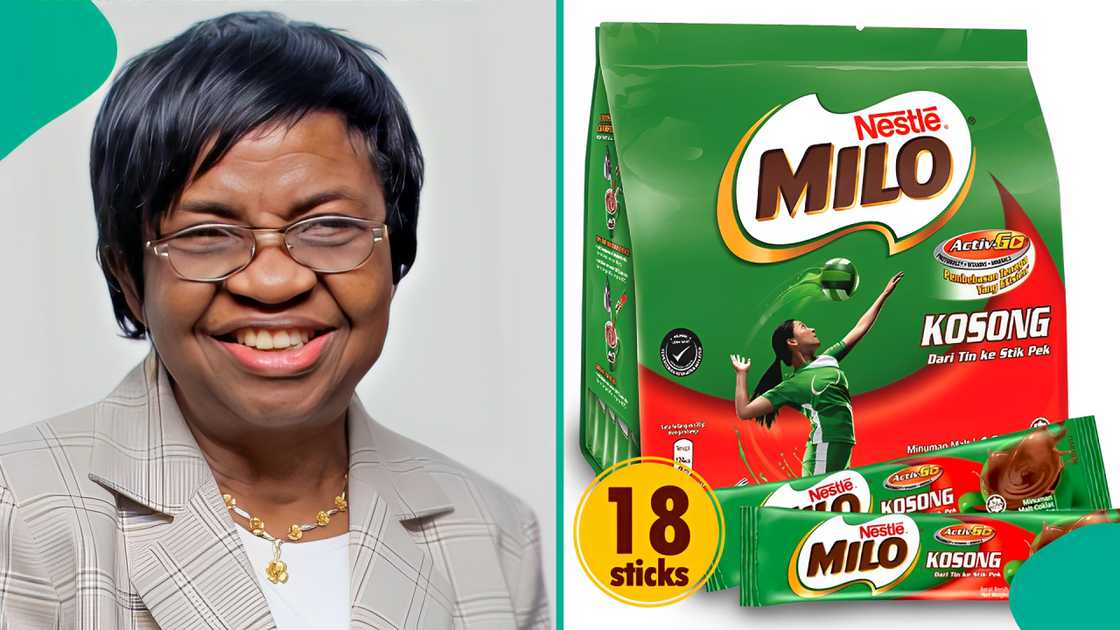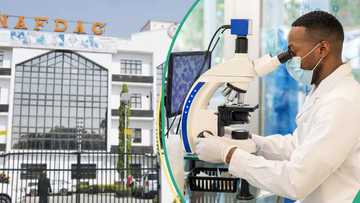NAFDAC Takes Action in Bauchi, Begins Three-Day Operation to Rid Fake Milo Chocolate Drinks
- NAFDAC has launched a comprehensive three-day operation across Bauchi state markets to remove counterfeit Milo chocolate drinks from circulation
- Bauchi's NAFDAC office is not only focusing on fake Milo products but also planning a critical engagement with agrochemical dealers regarding banned substances
- In addition to the ongoing market inspections, NAFDAC is urging local businesses to renew their licences and register products to ensure compliance and market integration
Don't miss out! Join Legit.ng's Sports News channel on WhatsApp now!
BAUCHI, NIGERIA — The National Agency for Food and Drug Administration and Control (NAFDAC) has commenced a three-day operation in Bauchi to rid the state's markets of counterfeit Milo chocolate drinks.
The exercise, which started on Tuesday, August 20, was a response to a directive from NAFDAC's headquarters, Paul Kamai, the agency's director in Bauchi, said.

Source: UGC
In an interview with the News Agency of Nigeria (NAN) on Wednesday, Kamai stated:

Read also
"Our nation’s future": FG sends fresh message to Nigerian students over NELFUND, details emerge
“The NAFDAC office began the inspections in markets and superstores to get rid of the fake Milo in circulation following a directive from the headquarters. This exercise will last for three days starting Tuesday.”
NAFDAC launches 3-day operation in Bauchi markets
The operation has seen NAFDAC officials conducting thorough inspections across various markets and superstores in Bauchi, with the goal of ensuring that only genuine Milo products remain on the shelves.
In addition to the crackdown on counterfeit products, NAFDAC has scheduled a meeting within the week with the leadership of the Agrochemical Dealers Association in Bauchi.
Kamai highlighted the importance of this engagement, particularly in light of the upcoming harvest season.
“In Bauchi, we will engage the dealers of agrochemicals against the use of Dictholoruvis and Paraquat chemicals to store food as we approach harvest period,” he explained.
“These are dangerous chemicals that have been banned over time.”
The state director for NAFDAC also issued a reminder to bakers and packaged water producers in the state about the importance of renewing their operational licences within the stipulated two-year timeline.
“Failure to renew the operational licences could result in penalties that might affect business operations,” he warned.
Furthermore, he urged small and medium enterprises (SMEs) to register their products with NAFDAC.
“Registering with NAFDAC will help assimilate their products into Nigerian markets,” Kamai noted, emphasizing the need for compliance to ensure product safety and market acceptance.
Fake drugs in Nigeria
The issue of fake products in Nigeria has been a longstanding challenge, with significant cases highlighting the scale of the problem over the years.
A report in Bayero University, Kano's Journal of Basic and Clinical Sciences in 2017 estimated that over 40% of pharmaceuticals in circulation in Nigeria were counterfeit, posing severe public health risks and prompting stronger regulatory actions.
A notable instance occurred in 2008, when fake antimalarial drugs flooded the market, leading to widespread health complications and fatalities.
Although there have been claims that there are up to 70 per cent fake drugs in Nigeria, NAFDAC refuted it. In a report by Vanguard newspaper, the agency clarified that Nigeria has just 12 to 15% fake drugs.
Chidi Chinedu, a Public Affairs Analyst, while speaking with Legit.ng confirmed that counterfeiting is at a high scale in Nigeria:
“I truly don’t envy NAFDAC. The scale of challenge of counterfeiting is alarming. But it is still their primary responsibility to address it. I would advise for an expansion of the manpower at NAFDAC, as well as more investment in technology and other operational resources for the personnel. Also, other agencies with responsibility to check counterfeit products can collaborate with NAFDAC to improve the situation. The Customs is a primary stakeholder in this respect. The police as well. Preventing fake products from entering the country, and prosecuting criminals who engage in counterfeiting and smuggling of such products should be decisively done. Finally, citizens have to help NAFDAC. If you see counterfeiting anywhere, sound the alarm; so much is at stake.”
NAFDAC warns Nigerians about ginny non-dairy creamer
Meanwhile, Legit.ng earlier reported that NAFDAC also issued a public alert regarding the illegal distribution of falsified Ginny non-dairy creamer products.
The agency said the counterfeit products have flooded markets across the country, particularly in northern Nigeria, due to their high demand.
Proofreading by James, Ojo Adakole, journalist and copy editor at Legit.ng.
PAY ATTENTION: Donate to Legit Charity on Patreon. Your support matters!
Source: Legit.ng





